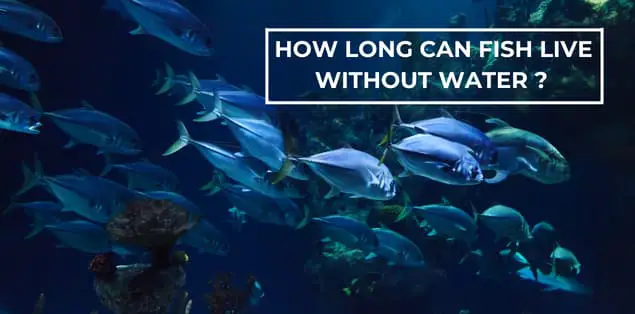So, how long can fish live without water? You’ve probably heard the idiom “like a fish out of water,” but what does it mean? This age-old proverb refers to an individual feeling out of place in a specific setting.
If you’ve ever had a fish escape its tank, you’ve probably seen it flailing about on the floor as if it were desperately trying to locate some water to drink. So we can trace the phrase back to that period.
Now that things have calmed down, it is imperative that you place your pet immediately back into his tank. However, how long can a fish survive if not in the water?
Continue reading to discover the answer! So, without any further ado, let’s jump right into it!
Can Fish Live Without Water?
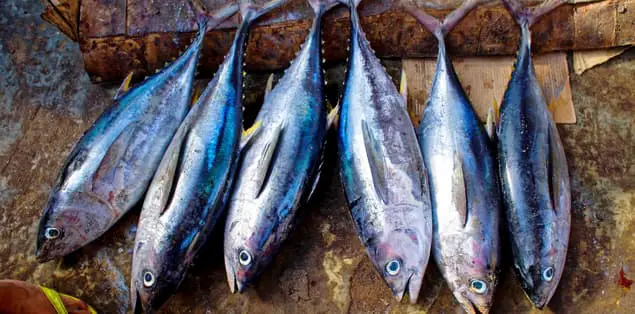
Yes, but only for a some time.
Most fish lack the physical components necessary to draw oxygen directly from the surrounding air. But, many of them can endure for a certain amount of time. Even though you may question whether the fish in your aquarium might survive outside of water, the truth is that the natural habitat most conducive to their survival is water.
Fish quickly suffocate and pass away if you remove them from their native environment, where they have evolved to get the oxygen they need to survive. In the long run, a fish cannot live without water for an infinite amount of time. It is only a matter of how long until it starts to suffocate from the lack of oxygen.
If you have a fish tank or a koi pond, a common error is to assume that fish can live without water and then purposefully remove all of the water from the tank. This is a mistake that you should avoid making.
While your fish can stay alive without water for roughly ten minutes, doing so is not ideal and should be avoided since it’s harsh to your fish.
The few minutes that your fish stays outside of the water will give it substantial stress due to the gills fluttering and attempting to take oxygen from the incorrect environment. This will lead the fish to experience large amounts of stress.
How Long Can Fish Live Without Water?
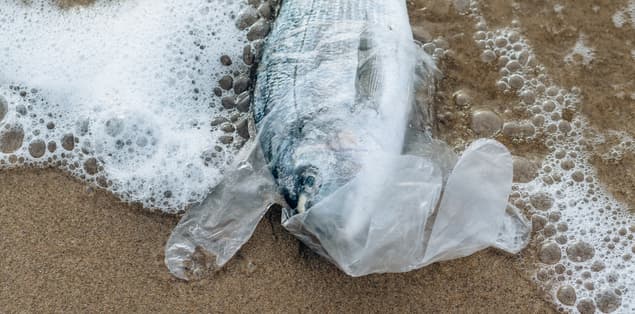
Considering how much fish need water, some are capable of remaining out of it for quite a while. Depending on the fish species, several can only live for a few seconds, while others can survive for several days or even months per their natural ability.
They do not possess both lungs as we do; rather, they have more fragile gills that enable them to metabolize the levels of dissolved oxygen in their environment. This is the primary reason that prevents them from living on land and taking in oxygen as we do.
However, there are many different fish species, each having unique anatomy and particular traits which allow several of them to absorb oxygen from the air and the water and swim.
Every experienced fish keeper or aquarist understands that certain fish are mammals with lungs or other anatomical traits. These traits allow them to receive all the oxygen they need to be alive or even store it for some time while moving underwater.
Factors That Determine Survival of Fish Without Water
Three main factors determine how long a fish will survive without water.
Species
The type of species determines the length of time a fish can survive outside the water. For example, amphibian fish may survive outside water for hours, days, or even years. This is because their bodies can tolerate extreme circumstances.
Pet fish or aquarium fish only live for several seconds to a few minutes until their gills dry out and the fish die.
Metabolic Rates
Another aspect influencing a fish’s ability to survive outside of the water is the quantity of energy it needs to survive. For example, the metabolic rates of their native habitat are affected by external variables like temperature, which impact their body temperature.
Fish that dwell in cooler temperatures, for example, possess a slow metabolism rate, which means they consume less oxygen and live longer.
Oxygen Demand
The amount of atmospheric oxygen that a fish needs to survive in the absence of water will influence how long it can live without oxygen. For example, fish with slow metabolism have lower oxygen needs, making them more durable than outside water, even without an external oxygen source.
So, we’ll see how long can different fish species stay out of the water.
How Long Can a Betta Fish Live Out of Water?
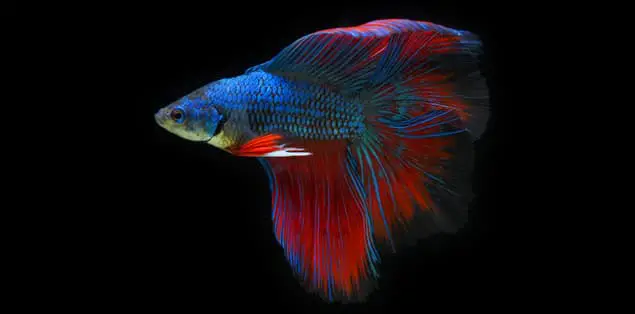
We generally acknowledge that betta fish, like other species of fish in the aquarium, will often live out of water for one to two hours. Almost all the time, a betta or any other live-bearing fish would return to the water as soon as they feel frightened by an object they locate.
If this occurs, this fish would re-establish itself through the waters & swim back to its tank to resume its normal activities. Unfortunately, this doesn’t happen overnight. In reality, a healthy betta could survive without water for quite some time before succumbing to weather changes or other factors like poor food.
If you observe your fish growing unwell, do not try to tamper with them since the fish will most probably die from their circumstances if you alter their natural habitat. Furthermore, it is critical to understand that even if the weather outdoors is cold, your fish may suffer from hypothermia, which can lead to death.
How Long Can a Koi Fish Live Out of Water?
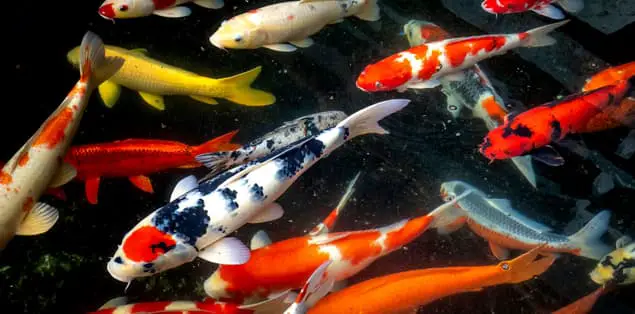
The period that Koi may live without any active oxygen source or water can vary from a few hours to many days. If there is no dissolved oxygen in the water, they will perish in minutes.
How Long Can a Snakehead Fish Live Out of Water?
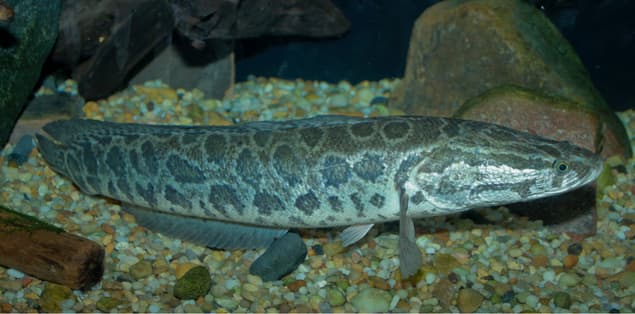
Snakeheads may live in poorly oxygenated stagnant water since they are obligate air-breathers. They could survive lasting up to four days without water. Also, Snakeheads are resistant to changes in salinity, temperature, and nutrition and may thrive in a broad range of environments. They can survive without water lasting up to 4 days if kept wet, and they will hibernate under mud during droughts.
How Long Can a Puffer Fish Live Out of Water?
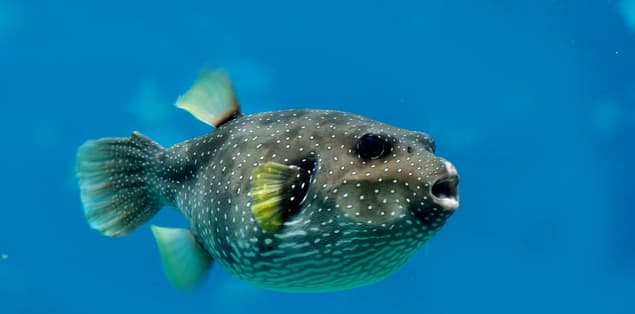
If the fish is unable to deflate because of the air that is trapped within it, the puffer will die. When a puffer feels afraid when it is out of the water, rather than taking in fluids, it will suck in air instead, which is very fatal for the fish.
How Long Can a Dragon Fish Live Out of Water?
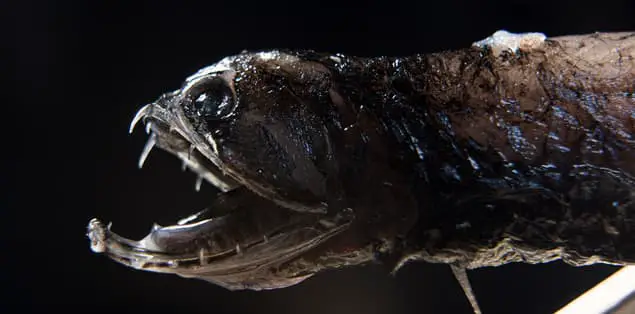
Dragonfish may wreak havoc in a home aquarium. They possess two whole lungs and can survive without water for almost seven days.
How Long Can a Mangrove Killifish Live Out of Water?
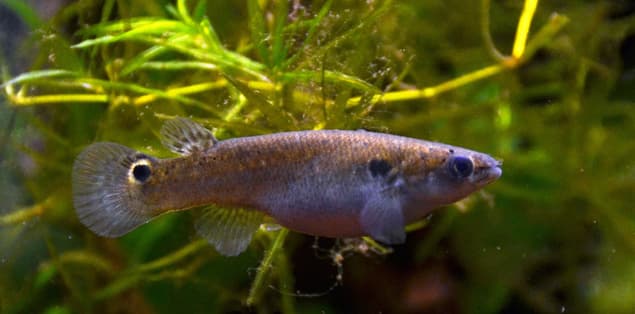
The Mangrove Killifish is a kind of aquatic fish that can go up to a month without any water at all. It is able to take in oxygen via its skin and retain it while they are out of the waters. When it returns to the water, it resumes utilizing its gills.
How Long Can a Pet Fish Live Out of Water?
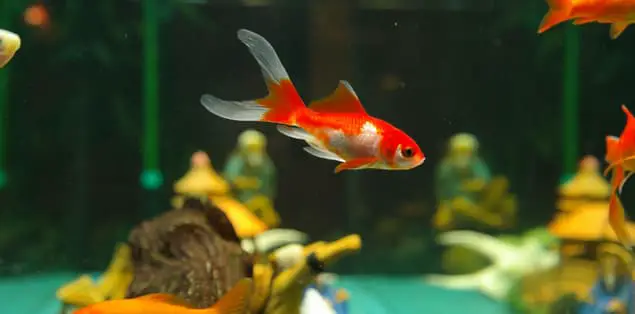
Pet fish, like goldfish and rainbowfish, are significantly weaker than saltwater fish, with smaller bodies and more delicate gills. Fish may suffocate and die fast without water (after 3 to 5 minutes of the no gills movement), so don’t pull them out unless you prepare freshwater for them.
How Long Can a Large Ocean Fish Survive Out of Water?
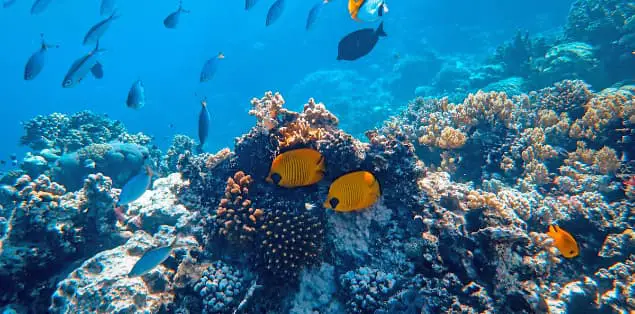
Remember those fish species that can breathe above the water’s surface? We’re talking about blue whales, sperm whales, beluga whales, and other massive undersea species. The fact is that they are animals that are sometimes mistaken for fish due to their oceanic habitat.
Since they are mammals, they possess lungs and can retain their breath for lengthy timespans underwater. They may also survive on land for months but must ultimately return to the water to give support to their bodies. Otherwise, their weight would crush their organs. Luckily, this allows our favorite whales, dolphins, and other pinnipeds to put up a show for us both above and below water.
Can Fish Survive in Milk?

No, they can’t. Fish breathe underwater only. Due to limited dissolved oxygen and the presence of contaminants in milk, these marine creatures cannot breathe correctly. As a result, fish can drown in milk in minutes. However, fish cannot thrive in foreign settings like milk, beer, vodka, or other liquids because their bodies have not developed from existing conditions other than water. Therefore, freshwater fish cannot thrive in salt water, and vice versa.
Have you wondered if fish can swim and thrive on milk, soda, beer, or other liquids than water? Before we move on to milk, first things first: let’s figure out how fish are able to breathe and live in the ocean.
Fish do not have lungs, unlike humans, since human lungs require moisture to operate correctly. However, suppose fishes have similar respiratory systems to humans. In that case, water will fill these lungs since fish have breathed underwater and should collect oxygen from water, whereas people get oxygen from the air.
As a result, the lungs of fish will not work correctly underwater. Gills are what enable fish to breathe when they are swimming through water. The fish’s gills play an important role in the process of oxygenation of the blood. During the act of respiration, water goes from the mouth of the fish to the gills, where it passes through the delicate fibers of the gills.
Gill filaments are small threads that resemble protein structures and feature a capillary network that offers a vast surface area for oxygen & carbon dioxide exchange. The oxygen taken by gill filaments is transported throughout the body by a fish’s heat pump.
After the fish completes the exchange of oxygen & carbon dioxide, carbon dioxide-containing water exits the body via gill flaps. To live in the water, fish take oxygen and expel carbon dioxide. Even though it has a water content of over 87 percent, milk is not a suitable environment for fish to dwell in.
Fish can readily swim under milk because its density is 1.2 times greater than water’s, and it has a similar viscosity to water. Now consider the factors contributing to milk being an unbreathable habitat for fish. For example, milk’s lactose, fat, or protein components lower the amount of accessible dissolved oxygen.
The high concentration of nutrients, lipids, proteins, and other substances may cause fish to asphyxiate because they cause the gills to get clogged. Another potential issue for fish would be clarity in the milk. Unless it moves, it will be challenging for fish to look for food inside the milk. It’s also conceivable that the fish will become infected because God didn’t make them live in milk.
You can consider milk as a contaminant in water, analogous to pollutants in the air. We know that contaminants in the air induce asphyxia and, therefore, can lead to various respiratory diseases in people. Similarly, milk is contaminated water, making it impossible for fish to breathe and thrive.
Why Do Fish Suffocate in Air?
“It’s only that they obtain their oxygen from dissolved oxygen, whereas humans get ours from the air.” When water travels over their gills, most fish breathe. However, if the fish’s gills are damaged in any way, they will die of asphyxiation since water will not be able to flow through them.
Final Words
There are several types of fish. Marine organisms do not have to spend their entire lives underwater. Instead, they have many survival tactics to help them live in the environment, including locating a habitat, mating, and hunting for food. We learn most of what we understand about fish underwater, so we fishkeepers must maintain it that way and not put our fish companions to the test.
Some are amphibious, while others require air; even though they dwell underwater, all fish require oxygen to grow.
This was a complete guide on how long can fish live out of water.
